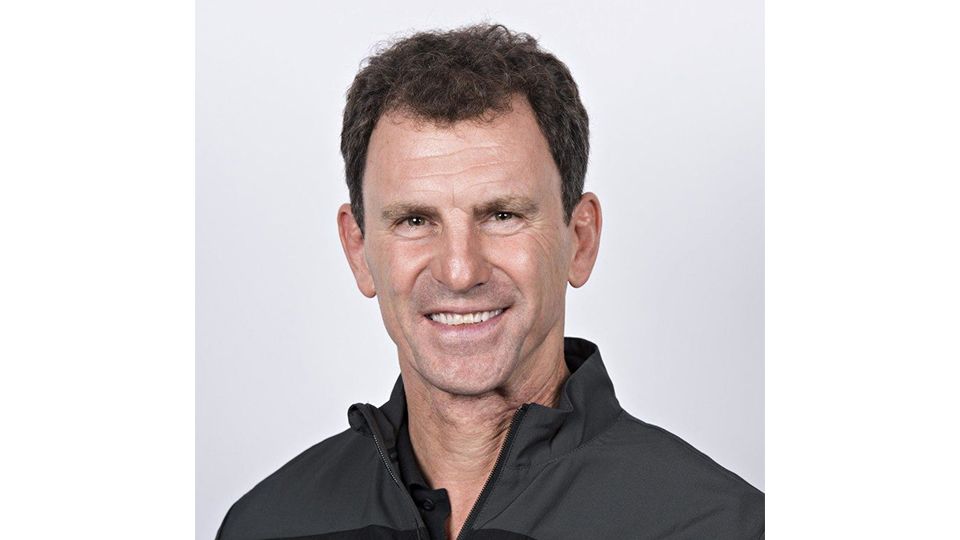29 Oct 2019
How can sport balance risk and player welfare?
The physical risks undertaken by athletes are increasingly becoming a key talking point, as player welfare comes to the fore at the 2019 Rugby World Cup, the Premier League and during this summer's Ashes series. Here, John Steele, Executive Director of Sport, Loughborough University and English Institute of Sport Chairman, looks at how sport should aid its participants to better balance the risks they take with their quest for better performance.
After a great set of quarter-finals and with the tournament now reaching a climax, it’s certainly been a 2019 Rugby World Cup to remember – but not necessarily for all the right reasons. There has been sensational action on the pitch, but there’s also a lot of talk about red cards, dangerous tackles, and head injury assessments. Not to mention the small matter of Typhoon Hagibis.
As a former player and coach, I know how difficult it can be to balance passion and the incredible will to win with risk assessment and wellbeing. There has always been background noise over player safety in rugby and understandably this will continue. In Premiership Rugby last season, there were 140 concussions reported. Down from 169 the previous season, but still the most commonly reported injury.
Yet rugby, and sport, in general, has this incredible power to bring people together, it makes lives richer and can shape society as little else can. In the dramatic moments where tournaments are won and lost, we share great joy and excitement. Years later, we remember clearly where we were and who we were with. Most rugby fans in this country will know exactly what they were doing on 22 November 2003. The athletes’ accomplishments prove to be life-shaping, not just for themselves but for many others.
We also know the never-ending quest for improvement and intense competition can reveal the worst of human behaviour. Sport reflects society and is susceptible to corruption, bullying, the influence of drugs and cheating. Societal “norms”, set for many decades, are rapidly shifting. As the 2019 Rugby World Cup draws towards a close and we approach 2020, an Olympic and Paralympic year, the question of how we support athletes, and those who coach and assist them, is not straightforward to answer.
Balancing risk with safety in sport will continue to be incredibly challenging, from both a mental and physical perspective. Many sports, like rugby, include an element of physical risk or danger and without these, participants would not necessarily derive the same enjoyment. Yet we must not lose sight of that crucial point where a duty of care takes precedence over enjoyment – even when there is athlete consent and choice.
Of course, it’s not just these sports we must consider. Not that long ago we enjoyed a fantastic summer of cricket that featured the compelling sporting spectacle of Steve Smith vs Jofra Archer in the Ashes. The drama was incredible, but a 92mph cricket ball to the neck, and concerns over Smith returning to bat raised serious and important questions over player safety. Brain injury charity Headway suggested it was “incredibly dangerous” for Smith to resume his innings.
Coaches, practitioners, and spectators must be given equal consideration too. FIFA World Cups and Olympic and Paralympic Games put great pressure on coaches and support staff – in addition to the athletes of course – many of whom will feel their jobs are on the line if success is not delivered and will experience the associated stress and anxiety.
At the English Institute of Sport, these are questions we are facing daily. It’s why we are always challenging ourselves and the broader system, to ensure we are putting people first. Elite sport has a responsibility to care for, develop and support the people it asks so much from.
We want the athletes we work alongside to be the best they possibly can for performance reasons, but also for their own personal reasons. It’s why our Performance Lifestyle team always takes a person-first approach, and why we have launched the #More2Me campaign to encourage athletes to improve sport-life balance – to develop a more rounded identity which reflects them as people, as well as athletes.
Working with these elite athletes every day, we want to do all that we can to support them to achieve greatness, but also to prevent what can be an all-consuming environment, smothering their broader human needs. We have created a dedicated mental health team to support athletes and our staff, who work in tandem with disciplines such as nutrition, physiology and sports medicine.
As we move towards 2020, we are experiencing an undercurrent of political and social unrest, and the values of our nation continue to be challenged. In this environment, sport can play such an important role in positively shaping attitudes and behaviours.
Sports, particularly those like rugby which are closely associated with risk and danger, will have detractors, in the same way that level of risk will draw spectators, coaches and athletes towards it. We must continue to uphold the right principles; to care about the whole person, but also acknowledge that competition, physical risk and danger are fundamental elements of the human psyche. We should seek to manage not eradicate them.















